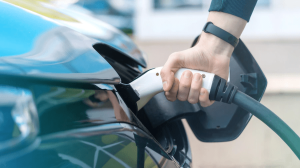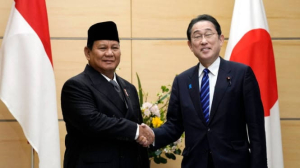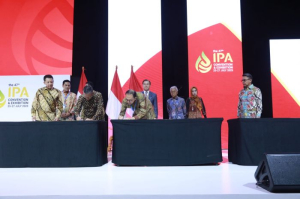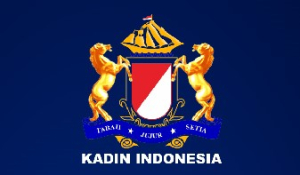Jokowi visits South Korea, Japan to boost investments, hinders future conflicts
Indonesian President Joko "Jokowi" Widodo made a series of visits to East Asian countries to boost investments and hedge future conflicts. Widodo and his entourage started their visit to China followed by Japan and South Korea.
In his three-day tour, Widodo made around US$13 billion in investment pledges and business deals after meeting South Korean counterpart Yoon Suk Yeol.
Previously, Widodo met with Japanese Prime Minister Fumio Kishida to discuss on various fields including energy and maritime security.
On his first day of the visit, Widodo met with Chinese President Xi Jinping and Prime Minister Li Keqiang to discuss on the Belt and Road Initiatives as well as bilateral trade.
Strengthening Indonesia-Korea partnership
Widodo believed the relationship between Indonesia-South Korea would be stronger through economic partnership.
"We welcome the increasing bilateral trade trend and we agree to open access to the market, solve trade obstacles and promote featured products of the two countries," Widodo said in a joint press statement with President Yoon after a bilateral meeting at the Yongsan Presidential Office in Seoul on July 28, 2022.
In the investment sector, Widodo said South Korea's investment in Indonesia has rapid growth and good prospect, especially in the sectors including steel industry, petrochemical, electric vehicles (EV), cables and telecommunication, garment and renewable energy.
"In the meeting, President Yoon, specifically encouraged investment cooperation from South Korea mainly in the acceleration of the development of electric cars in Indonesia, including integrated battery industry with mining and automotive steel for the electric vehicle industry," Widodo added.
At the same occasion, Widodo also welcomed South Korea's investment in the development of Indonesia's planned new capital. The investment is among other cooperation in the Clean Water System and capacity building in the development of a smart city.
"I welcome the signing of MoU between Investment Ministry and steelmaking companies of POSCO Korea and Krakatau Steel Indonesia related to the investment in the automotive steel industry for electric cars and participation in the development of state capital with a total value of US$6.37 billion and will absorb more than 58,000 workers," Widodo said.
At the end of the statement, the president appreciated South Korea's support for Indonesia's presidency in G20 and wait for the presence of President Yoon in Bali in November.
Hyundai's expansion on EV
Later in the day, Widodo met with Executive Chairman of Hyundai Motor Group Chung Eui-sun to listen to Hyundai's plan to expand electric vehicles and research and development (RnD) in Indonesia.
"They discussed the expansion of production of electric cars and RnD in Indonesia. This is still on the agenda," said Investment Minister Bahlil Lahadalia after the meeting.
Lahadalia said that Hyundai was also interested in participating in developing the new capital city. "Hyundai will invest in the upcoming capital, which is a positive development," he added.
POSCO's MoU with the Investment Minister/Investment Coordinating Board (BKPM) indicated the company's interest in investing in the Nusantara new capital.
"Hence, it is not valid if there is a perception that people are doubtful about the investment in the new capital," Lahadalia said.
Trade and investment with Japan
Prior to his visit to South Korea, Widodo met with Premiere Kishida in Tokyo on July 27, 2022, where the Indonesian president raised several points that eventually led to an agreement with Kishida. The two leaders have agreed to enhance cooperation in trade and investment between their countries.
"We agreed that the change to the IJEPA [Indonesian-Japan Economic Partnersip Agreement] protocol should be finalized and signed at the G20 Summit in Bali next November," said Widodo.
Widodo welcomed several significant Japanese investments in Indonesian investment market. Aside from recognizing the completion of the project on time, he also invited new investors from Japan in various sectors.
"We discussed the need to accelerate the completion of several strategic projects. Among these are Phase II of the North-South Jakarta MRT and Phase I of the East-West Jakarta MRT, as well as the expansion of Patimban Port and Patimban Toll Road. We also reviewed a commitment to the Masela Gas Project," said Widodo.
In his remarks, Widodo expressed his appreciation for Japan's support for Indonesia's presidency of the G20 on regional and global issues. It has a significant impact on the recovery of the worldwide economy.
"For the Indo-Pacific region, Indonesia will assume the chairmanship of ASEAN and Japan will assume the chairmanship of the G7 next year. Our partnership in formulating the priority agenda of the presidency will contribute more to the peace and prosperity of the region and the world," Widodo said.
Future Risk Hedging and Economic Relationships
According to Nikolaus Loy, a UPN Veteran University lecturer in Yogyakarta, Widodo's tour to Japan and Korea was strongly connected to the G20 Summit. Indonesia and the two countries are working to strengthen their traditional relationship, which makes the visit crucial. Indonesia has a long history with both countries, with a 65-year relationship with Japan and a 50-year relationship with South Korea, respectively.
Following China and the United States, Japan is Indonesia's third largest trading partner. In addition, South Korea is Indonesia's seventh export destination for non-oil and gas products.
"I think Widodo intends to revitalize the Indonesia-Japan Economic Partnership, first established in 2007 and reviewed in 2019. His visit strengthens economic relationships that have existed for decades," Loy said.
Indonesia has been a significant country for Japan since the latter was Indonesia's number one trading partner before China took over. Loy said Japan was seeking an opportunity to invest in Indonesia's new capital due to its high value.
Whereas Indonesia and South Korea have a close partnership in the defense industry, mainly in submarines and fighter jets. "In my view, the President's visit falls within the framework of a traditional relationship built on mutual interest," Loy said.
Read also: China, Indonesia extend agreement on Belt and Road Initiative
Indonesia's close relationship with China, South Korea and Japan retains historical resentments. They have old wounds due to Japan's invasion of Nanking in China and its colonization of South Korea as well as in Indonesia. In addition, there is also the Jugun Ianfu issue in South Korea and Indonesia.
However, there is also North Korea in the region, where China plays a significant role. In response to North Korea's behavior, Japan and South Korea feel threatened while China is in support of North Korea.
Loy said it was Widodo's commercial strategy to achieve peace and stability in the region.
"It is a simple argument, although we have had a horrible political relationship, such as in the history of communism and World War II. History with the potential for conflict and economic relationships may dampen it. Due to the interdependence between East Asia's major economies - China, South Korea, Japan and Indonesia - monetary cooperation can be a viable solution to dampen the conflict since North Korea affects East Asia's stability and security," he said.
"In addition, China and Japan continue to have overlapping claims in the East China Sea, and China has overlapping claims in the South China Sea with five ASEAN nations. A dampening effect occurs on economic relationships in such a situation," he asserted.
Economic interdependence contributes to regional peace and stability. Although there is no conflict, the chances of conflict become smaller if people trade among themselves, as they will be more likely to think twice about joining a war or using weapons to resolve a dispute. As a result of their economic interdependence, they will prefer negotiations and peace agreements.
Widodo's tour is an act of political hedging or future risk reduction. Because of the rapid changes in East Asia, primarily when superpower countries attempt to pressure China's power, instability exists in the region. Widodo's tour to the three countries is part of a hedging strategy designed to reduce future risks. Thus, Indonesia can anticipate upcoming conflicts if they occur.
Already have an account? Sign In
-
Start reading
Freemium
-
Monthly Subscription
30% OFF$26.03
$37.19/MonthCancel anytime
This offer is open to all new subscribers!
Subscribe now -
Yearly Subscription
33% OFF$228.13
$340.5/YearCancel anytime
This offer is open to all new subscribers!
Subscribe now






